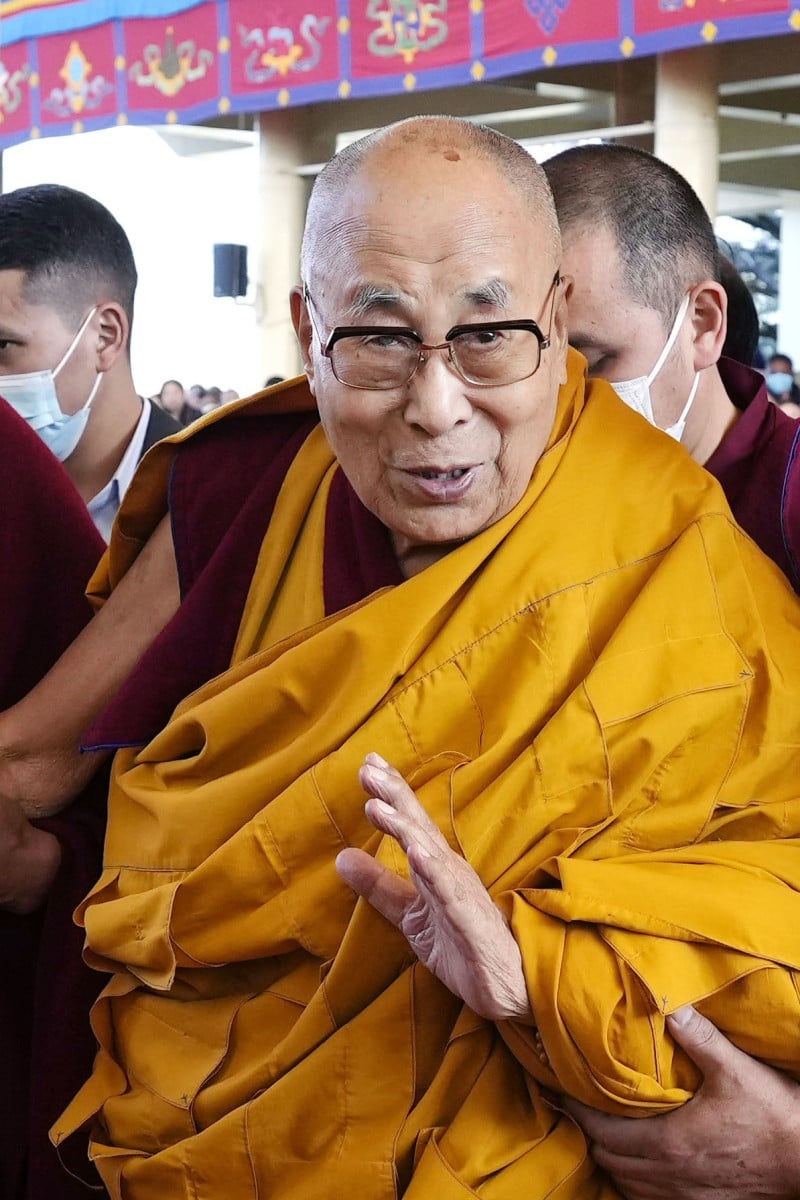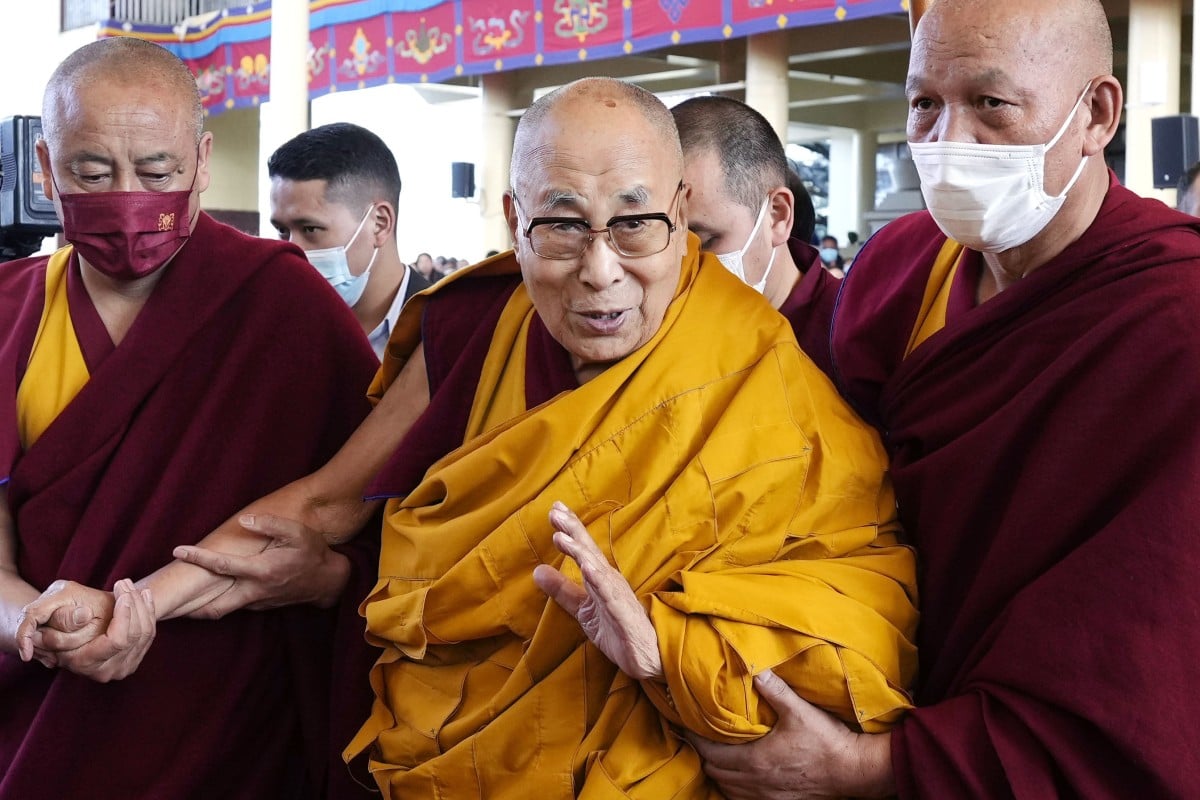
The Lens: Dalai Lama under fire after viral video of religious leader asking child to ‘suck my tongue’
- Some support the Tibetan Buddhist leader, saying his actions can’t be interpreted under a Western lens
- Each week, we choose a picture from the news and provide questions to help you dive deeper into the topic
 The 14th Dalai Lama pictured in Dharamshala, a northern Indian city where the Tibetan Buddhist spiritual leader lives in exile. Photo: Kyodo
The 14th Dalai Lama pictured in Dharamshala, a northern Indian city where the Tibetan Buddhist spiritual leader lives in exile. Photo: KyodoHave some thoughts on this issue? Send us your response (no more than 300 words) by filling out this form or emailing yp@scmp.com by April 19 at 11.59pm. We’ll publish the best response next week.
Observe and read
-
Do you recognise the religious leader in the picture?
-
Based on the news snippet, why is the video causing a backlash on social media?
News snippet
The Dalai Lama, the 87-year-old spiritual leader of Tibetan Buddhism, apologised last Monday after footage showed him asking a young boy to “suck my tongue” at a public event.
“His Holiness wishes to apologise to the boy and his family, as well as his many friends across the world, for the hurt his words may have caused.”
In the video, the young boy can be seen approaching the Nobel Peace Prize winner before asking, “Can I hug you?”
The spiritual leader then invites the boy on stage and points to his cheek and says, “first here,” prompting the boy to give him a hug and a kiss.
The Dalai Lama then points to his lips, and says: “then I think finally here also.” He then pulls the boy’s chin and kisses him on the mouth.
“And suck my tongue,” he says after a few seconds.
A statement on the Dalai Lama’s Twitter account said the leader “often teases people he meets in an innocent and playful way, even in public and before cameras. He regrets the incident”.
Supporters of the Dalai Lama have argued that the leader’s actions have been misinterpreted.
“Expression of emotions and manners today has been melted together and become vividly westernised,” Namdol Lhagyari, a Tibetan activist in exile, wrote on Twitter. “Bringing in [the] narrative of other cultures, customs and social influence on gender and sexuality to interpret [the] Tibetan way of expression is heinous.”
Sticking out one’s tongue is a sign of respect or agreement and was often used as a greeting in traditional Tibetan culture, according to the Institute of East Asian Studies at the University of California, Berkeley.
Reuters, CNN and Yanni Chow
Research and discuss
-
Do you think the Dalai Lama’s actions were inappropriate?
-
How should people approach and interpret other religions and cultures?
Thoughts from last week
Valerie Chiu, St Mary’s Canossian College
Amsterdam has launched a new “Stay Away” campaign to help the city, famed for its red-light district and coffee shops that sell marijuana, crack down on the wrong kind of mass tourism and encourage responsible growth.
The campaign targets British men between the ages of 18 and 35, as research shows they are often the most troublesome tourists.
Amsterdam hopes to sanitise its image and build a more liveable city, hoping that residents will no longer be disturbed by rowdy, out-of-control visitors and can lead more peaceful lives. The related online advertisements inform people of the severe consequences of creating chaos in Amsterdam.
I doubt the “Stay Away” campaign will be effective since rowdy young people may not realise their actions are incorrect or won’t care.
One downside to the campaign is it may reduce the number of tourists, as people might find the city’s rules too strict. This could hurt the economy.
Public education is the smartest solution. Instead of showcasing how rebellious youngsters will be punished, why not share how their behaviour affects nearby residents? This will help them sympathise with the people living in annoyance every night.
By learning terms such as mutual respect and understanding, people can learn how to be more considerate.
The Lens: Amsterdam launches new campaign warning party-seeking British men to ‘stay away’